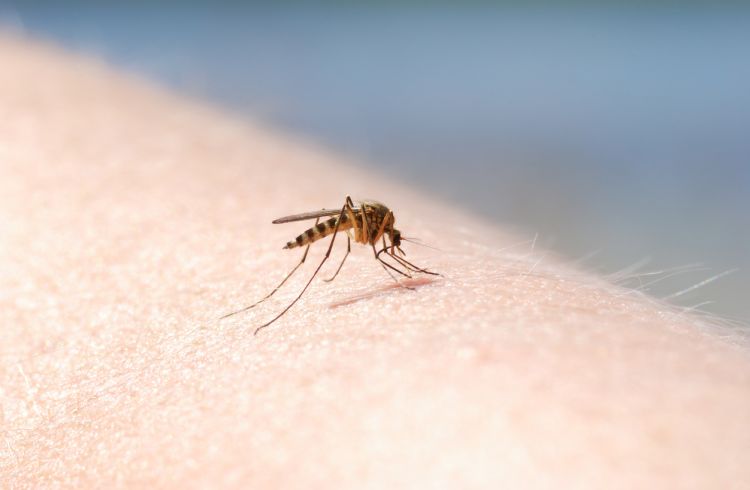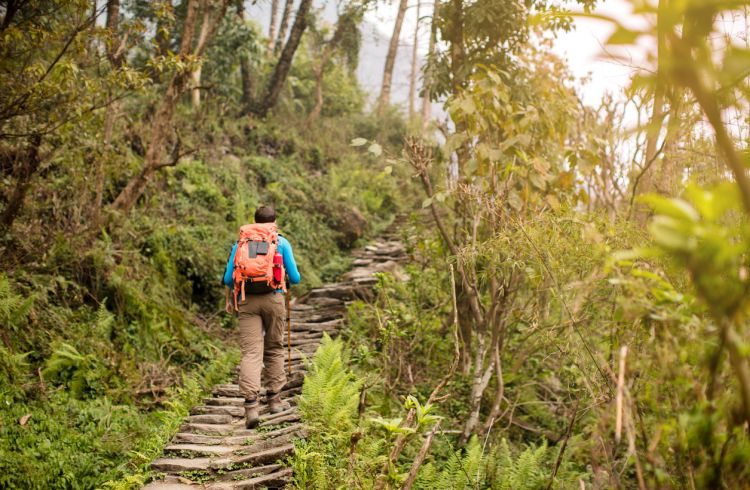Travel Health: Japanese Encephalitis
What is Japanese Encephalitis? Learn more about symptoms, treatment and prevention of the disease before you go to a risky country.
 Photo © iStock
Photo © iStock
Japanese encephalitis (JE) is an infection in the brain and one of the major causes of viral encephalitis in Asia. According to the World Health Organization (WHO), the virus is related to other mosquito-borne viruses including dengue fever, yellow fever and West Nile virus. There is no cure for Japanese encephalitis and approximately 70,000 people are diagnosed with the disease in Asia each year.
The majority of cases are asymptomatic but, of those infections with symptoms, up to 30% are fatal. Most experts agree that the number of reported cases is much less than actual cases.
Encephalitis derives from the Greek word encephalo (brain) and "itis", meaning inflammation or infection.
How It Spreads
JE is transmitted by bites from an infected Culex sp. mosquito, making it very difficult to prevent. One positive is that it can't be transmitted person to person.
Japanese encephalitis is mostly found in rural environments, and those traveling to farming areas are considered at special risk.
Although the disease is active year-round, rainy seasons increase mosquito populations, generally causing an increase in the number of cases.
While cases in travelers are rare, an Australian died in June 2017 after contracting JE while traveling in Phuket, Thailand.
Regions Affected
Japanese encephalitis is primarily found in Asia, particularly South East Asia, with peak transmission during the warmer months. However, the WHO has reported that countries in the
For more information, check your government's travel advisory or the embassy of the country you plan to travel to, to determine if there is an outbreak or if JE is endemic.
Vaccination
The vaccines for Japanese encephalitis have been contraversial over the years, due to vaccine ingredients, availability, cost and side effects.
Ixiaro is the vaccination available in the USA, EU, UK, Australia, New Zealand and other countries. This one-dose vaccination protects travelers for life.
Travelers heading to Asia for a year or more, spending a month or more in rural parts of Asia or a month or more in Papua New Guinea, are strongly advised to have the vaccination.
Other travelers who should consider having the vaccination include:
- Expatriates
- Those with increased outdoor exposure
- People over 50
- Children under 10
- Those with chronic medical conditions
Chat with your travel doctor if you have any concerns regarding the vaccination or transmission risk.
Duration
JE generally incubates over three to eight days after contracting the disease and can hang around from 30 to 90 days.
Symptoms
Symptoms typically include high fevers, headaches, disorientation and neck stiffness. Sometimes seizures, weight loss, and paralysis also occur. Around 30% of reported cases result in death.
Treatment
Only the symptoms of Japanese encephalitis can be treated, and resting, adequate hydration, fever reduction and pain control can also help. Brain swelling medication may also be prescribed to those with advanced but treatable cases.
Prevention
Aside from vaccination, bite prevention is also important; use barrier methods such as bed nets, long-sleeved clothing, and repellents including mosquito coils or citronella where applicable.
Using a strong DEET-based insect repellent and permethrin-treated clothing are strongly advised. Try to avoid outdoor activity during peak mosquito biting times (dusk/dawn), avoid standing pools of water such as ponds, puddles, buckets, urns and other containers where mosquitos will breed.
Related articles
Simple and flexible travel insurance
You can buy at home or while traveling, and claim online from anywhere in the world. With 150+ adventure activities covered and 24/7 emergency assistance.
Get a quote
No Comments